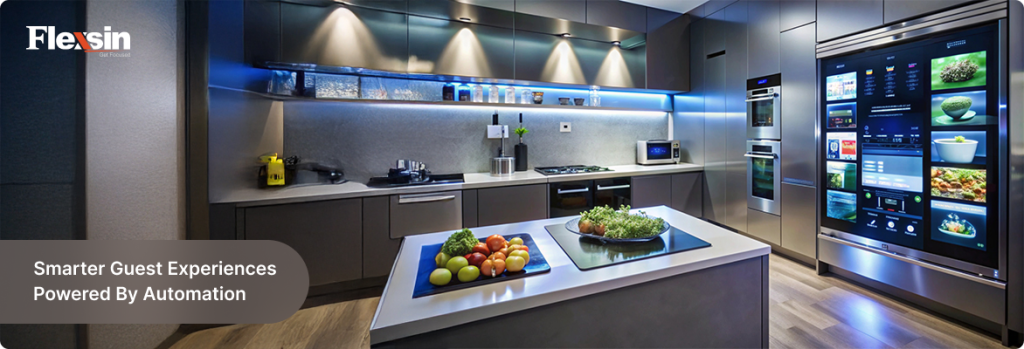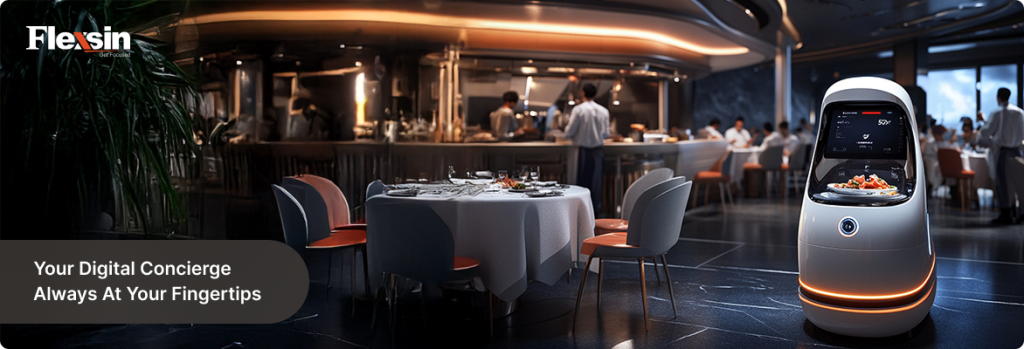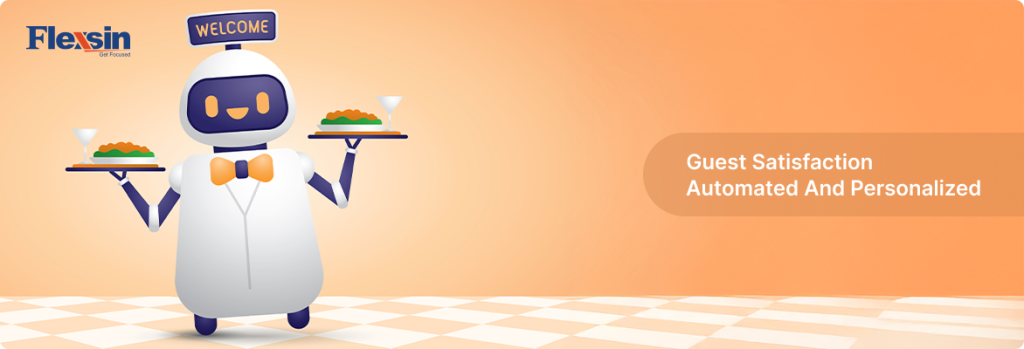The hospitality industry is rapidly evolving, and one of the key drivers behind this transformation is guest service automation. The days of manually handling every guest interaction and service request are quickly fading, replaced by powerful AI-driven solutions that not only enhance the guest experience but also streamline operations for hotel and travel businesses.
However, while the potential benefits of guest service automation are immense, many businesses still face significant challenges in implementing these solutions. From customization and integration to scalability, the journey toward automation can be daunting.
1. Challenges in Guest Service Automation
As hospitality businesses look to implement guest service automation, they encounter several key challenges. While automation holds incredible promise, it is essential to address these challenges to fully leverage its potential.
Customization Challenges
The biggest challenge many hospitality businesses face with automation is the ability to customize solutions that fit their specific needs. A one-size-fits-all approach simply doesn’t work when it comes to the diverse needs of guests and the different ways hotels, resorts, and travel agencies operate.
Flexsin Technologies’ guest service automation consulting services specialize in providing tailored automation solutions that are aligned with the unique service goals of each business. By working closely with clients, Flexsin ensures that the automation system is personalized, offering customized features like personalized guest recommendations, booking systems, and loyalty programs.
Integration Difficulties
Another challenge lies in integrating automation tools with existing systems. Many hospitality businesses rely on legacy systems for reservations, check-ins, and customer relationship management (CRM). Introducing guest service automation can often disrupt these systems, leading to data silos, errors, and inefficiencies.
Flexsin’s expert consultants help businesses integrate guest service automation seamlessly with their existing software stack. By leveraging open APIs and modern integration techniques, Flexsin ensures that automation tools work harmoniously with current systems, improving efficiency without compromising the functionality of existing platforms. This integration is key to unlocking the full potential of AI guest service automation.
Scalability Issues
For growing hospitality businesses, scalability is a critical concern. While smaller businesses can implement simple automation solutions, they may struggle to scale these systems as their operations expand. With increased bookings, larger guest bases, and more complex service needs, the automation tools must be able to handle higher volumes of data and interactions.
Flexsin offers scalable guest service automation solutions that grow with your business. Whether you’re expanding to new locations or increasing the variety of services offered, Flexsin ensures that your automation system can scale without sacrificing performance or guest experience.
Proven Strategies for Success
Guest service automation is not just about enhancing the guest experience—it’s also about maximizing your return on investment (ROI). When implemented strategically, automation can significantly reduce operational costs, increase guest satisfaction, and ultimately drive higher profits for hospitality businesses. Let’s dive into how guest service automation consulting services can help businesses achieve a substantial ROI.

2. Guest Service Automation Consulting: Key Insights
For businesses new to guest service automation, the idea of adopting such technology may seem overwhelming. From choosing the right tools to ensuring smooth implementation, there’s a lot to consider. However, with the right consulting services, the process can be straightforward and beneficial from the outset.
Flexsin Technologies’ guest service automation consultants provide in-depth guidance on every aspect of automation. They start by helping businesses identify the right automation tools based on specific goals, whether it’s improving booking systems, optimizing customer service, or enhancing guest engagement. The team will also offer clear recommendations for technologies like AI chatbots, virtual assistants, and predictive guest service tools that best fit the business’s size, needs, and budget.
With the right advice and a well-planned strategy, even businesses new to automation can hit the ground running, ensuring they make the most out of their investment.
Boost Your Bottom Line
One of the most compelling reasons for businesses to adopt guest service automation is the potential for cost savings. By automating repetitive tasks such as guest check-ins, reservations, and inquiries, businesses can free up staff time to focus on higher-value tasks, reducing labor costs and improving overall efficiency.
For example, automated room service orders, booking confirmations, and AI-driven guest interactions ensure smoother operations with fewer errors and delays. This not only saves businesses time and money but also enhances guest satisfaction, which, in turn, boosts brand loyalty and conversion rates.
Additionally, guest service automation tools like AI-powered chatbots can answer questions 24/7, addressing guest concerns in real-time and leading to faster decision-making.
3. Unlocking Hospitality Business Growth
As hospitality businesses grow, the need for guest service automation becomes more pressing. Manual processes can no longer support the increased volume of interactions and transactions that come with larger operations. Here’s why automation is a must for enterprises:
Consistency in Service:
With guest service automation, businesses can ensure a consistent experience across all touchpoints. Automated systems deliver the same high-quality service every time, regardless of peak demand periods, helping businesses maintain a strong brand reputation.
Increased Operational Efficiency:
Automation can streamline processes such as guest check-in, concierge services, and room management. This leads to faster response times and more efficient operations, resulting in cost savings and a better experience for guests.
Personalized Experiences at Scale:
Enterprises often struggle to offer personalized experiences as they grow. However, AI-driven guest experience tools allow businesses to personalize interactions at scale by analyzing guest data to deliver customized recommendations and offers.
Data-Driven Insights:
Automation tools gather vast amounts of data from every interaction, providing businesses with actionable insights into guest preferences, behaviors, and feedback.
The future of the hospitality industry is undeniably tied to guest service automation. As more businesses in the travel and hospitality sectors adopt AI-driven technologies, we see exciting transformations in both customer experience and operational efficiency. Here are some of the most innovative use cases that showcase how guest service automation is shaping the future of hospitality businesses.
One of the most visible applications of guest service automation in hospitality is the use of AI chatbots and virtual assistants. These tools are revolutionizing how hotels, resorts, and travel agencies handle customer inquiries, bookings, and service requests.
AI chatbots, integrated across websites, mobile apps, and messaging platforms like WhatsApp, are now handling everything from answering basic questions (e.g., “What time is check-out?”) to more complex tasks (e.g., “Can you arrange transportation to the airport?”). These chatbots work around the clock, ensuring guests receive timely responses without waiting for a human representative.
AI chatbots reduce wait times, improve guest satisfaction, and free up human staff to focus on more strategic tasks, such as personalized guest experiences or managing high-touch services.

4. Predictive Guest Service Technology in Hotel Management
As the industry looks toward the future, predictive guest service technology is becoming an essential tool for personalized guest experiences. Leveraging the power of machine learning, predictive analytics can anticipate guest needs and preferences before they even ask.
For example, based on historical guest data and behavior, predictive guest service tools can recommend personalized services, such as dining reservations, spa appointments, or room upgrades. Hotels are using these tools to offer tailored experiences, such as recommending activities or special offers based on a guest’s past visits or preferences.
Automated Room Service and Guest Interaction Automation
Room service automation is another area where guest service automation is having a profound impact. Traditionally, placing a room service order involved calling the front desk or restaurant, waiting for a human to process the request, and then waiting for delivery. Now, with room service automation, guests can place their orders directly through a digital interface, such as a tablet or smartphone app.
Beyond room service, guest interaction automation is becoming common in other areas, such as event scheduling, concierge services, and check-in/check-out procedures. This not only enhances operational efficiency but also reduces human error and improves the overall guest experience.
The future of the hospitality industry is undeniably tied to guest service automation. As more businesses in the travel and hospitality sectors adopt AI-driven technologies, we see exciting transformations in both customer experience and operational efficiency.
Automated Room Service and Guest Interaction Automation
Room service automation is another area where guest service automation is having a profound impact. Traditionally, placing a room service order involved calling the front desk or restaurant, waiting for a human to process the request, and then waiting for delivery. Now, with room service automation, guests can place their orders directly through a digital interface, such as a tablet or smartphone app.
These systems allow guests to browse menus, customize their orders, and track the status of their requests in real-time. Moreover, AI-powered tools ensure that the service is fast, accurate, and delivered as requested.
Beyond room service, guest interaction automation is becoming common in other areas, such as event scheduling, concierge services, and check-in/check-out procedures. This not only enhances operational efficiency but also reduces human error and improves the overall guest experience.

5. The Future is Here – Embrace Guest Service Automation Today
By automating tasks such as guest inquiries, room service, and personalized recommendations, hospitality businesses can not only improve operational efficiency but also provide memorable, high-quality experiences that will keep guests coming back. Moreover, guest service automation opens the door to new revenue opportunities through upselling, data-driven insights, and improved guest loyalty.
The hospitality industry is moving fast, and those who fail to adopt guest service automation risk falling behind. If you want to stay competitive and deliver exceptional service to your guests, now is the time to explore how Flexsin Technologies’ custom guest service automation consulting services can help you make the most of this transformative technology.
Flexsin revolutionized guest experiences with AI-driven service automation, streamlining operations and enhancing satisfaction for travel & hospitality leaders like TripCandy, Cayman Airways, and Pro Travel World.
Ready to take your business to the next level with guest service automation? Contact Flexsin Technologies today to explore our tailored automation solutions and start providing exceptional experiences for your guests while boosting your operational efficiency!


 Munesh Singh
Munesh Singh